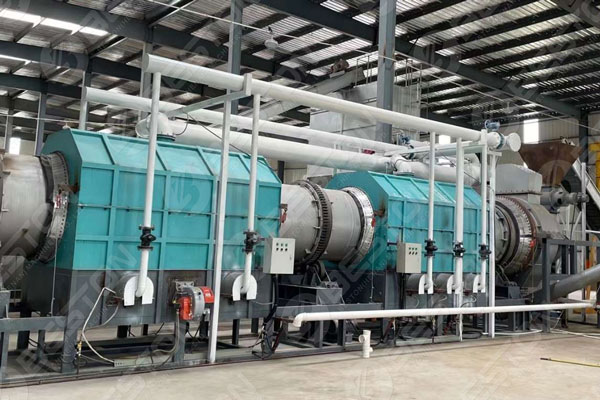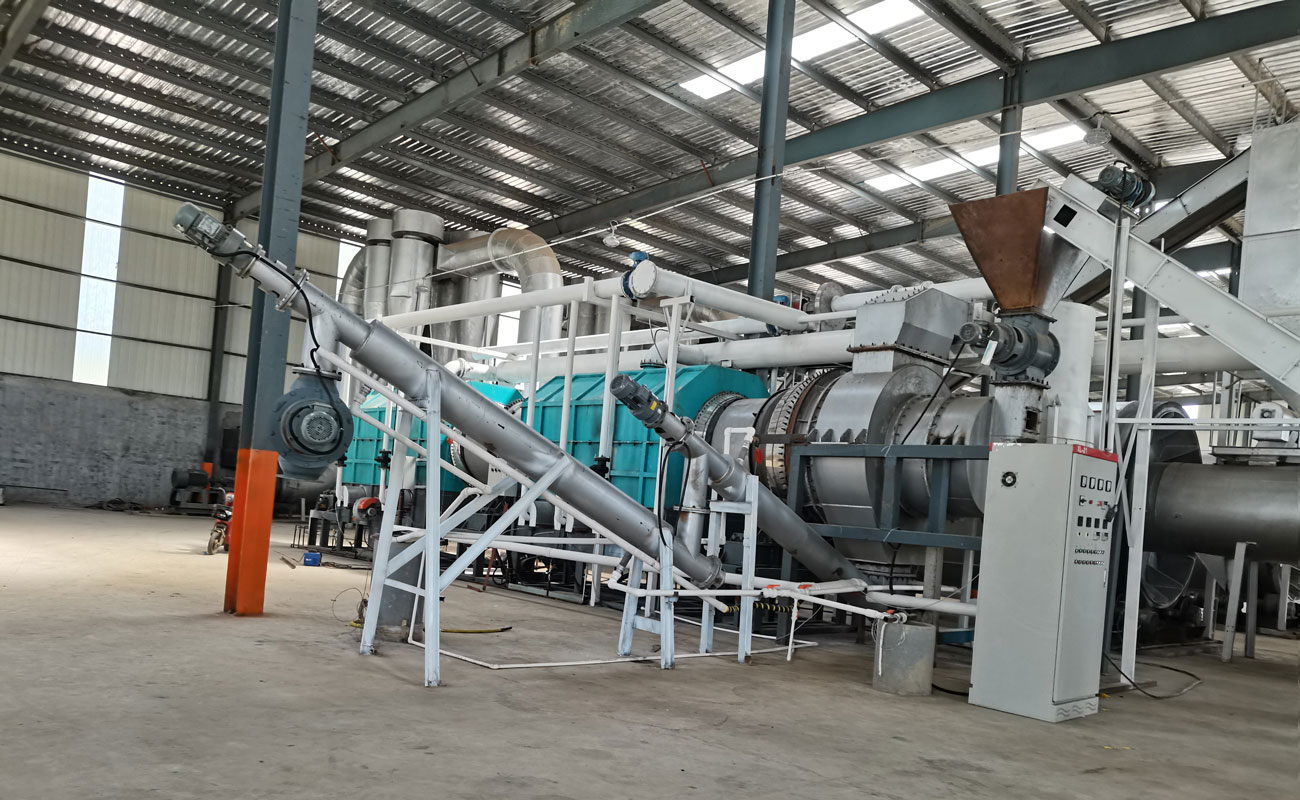The global push towards sustainable and renewable energy sources has intensified the exploration of various technologies for the conversion of biomass into valuable products. Biomass pyrolysis, a thermochemical process, offers a promising avenue for the effective utilization of agricultural residues and forestry biomass. This article delves into the application of biomass pyrolysis equipment in transforming these organic materials into biochar, bio-oil, and syngas, thereby contributing to waste reduction, energy generation, and soil improvement.
Agricultural Residues Utilization
Agricultural activities generate substantial amounts of crop residues and organic waste. Biomass pyrolysis has emerged as a viable solution to manage these residues effectively. Through the process of pyrolysis, these agricultural wastes are subjected to high temperatures and controlled oxygen levels, leading to the decomposition of complex organic compounds into valuable products. Biochar, a carbon-rich material, is produced as a byproduct of biochar machine, which can be used to enhance soil fertility and sequester carbon, thereby promoting sustainable agriculture practices.
Forestry Biomass Valorization
Forestry operations yield significant quantities of leftover biomass, including branches, bark, and wood chips. Instead of being discarded or left to decay, this biomass can be converted into useful resources through pyrolysis. The pyrolysis process yields bio-oil, a liquid fuel with potential applications in heating and power generation. Additionally, the syngas produced can be further processed to produce clean energy or chemicals, contributing to the diversification of the energy mix and reducing reliance on fossil fuels.

Environmental Benefits
Biomass pyrolysis plant offers several environmental advantages. Firstly, the process reduces the emission of greenhouse gases by converting biomass into stable biochar, which sequesters carbon and prevents its release into the atmosphere. Secondly, the produced bio-oil and syngas can replace traditional fossil fuels, mitigating air pollution and lowering carbon dioxide emissions. This not only contributes to climate change mitigation but also helps in achieving international sustainability goals.
Economic Viability
The utilization of biomass through pyrolysis also presents economic benefits. Agricultural and forestry residues, often considered as waste, can be transformed into valuable commodities. Biochar enhances soil quality, leading to increased agricultural yields and reducing the need for synthetic fertilizers. Bio-oil and syngas can serve as alternative energy sources, potentially reducing energy costs and enhancing energy security.

Technological Advancements
Advancements in pyrolysis technology have led to improved efficiency and product quality. Fluidized bed, fixed bed, and rotating cone pyrolysis systems offer varying degrees of control over the process parameters, enabling optimization for different types of feedstock. Additionally, catalysts can be incorporated to machines like sawdust charcoal making machine to tailor the composition of the bio-oil, enhancing its properties for specific applications.
Challenges and Future Outlook
While biomass pyrolysis holds great promise, challenges remain. Feedstock variability, reactor design, and product distribution are areas that require continued research and development. Additionally, the scalability of pyrolysis systems for large-scale commercial applications needs to be addressed.
In conclusion, biomass pyrolysis equipment plays a pivotal role in the sustainable utilization of agricultural residues and forestry biomass. This technology not only aids in waste reduction and energy generation but also contributes to soil improvement and carbon sequestration. As research and innovation in this field progress, biomass pyrolysis could emerge as a cornerstone of the transition towards a more sustainable and circular bio-based economy. You can click Beston to get more message.